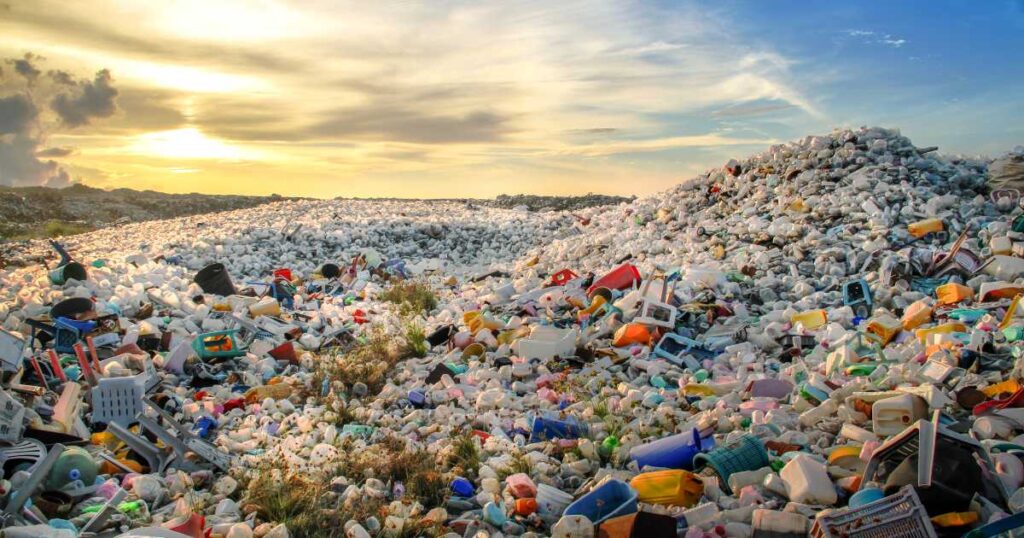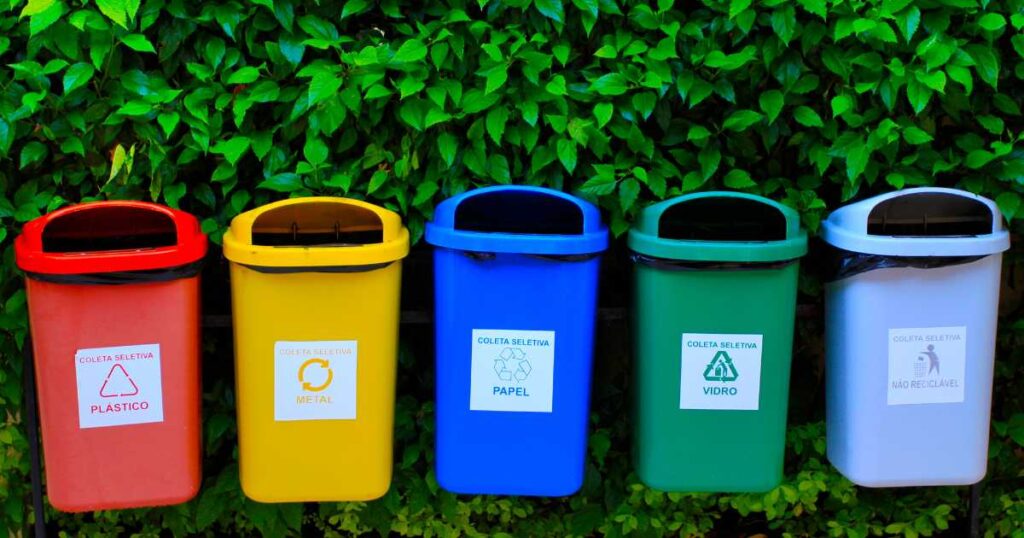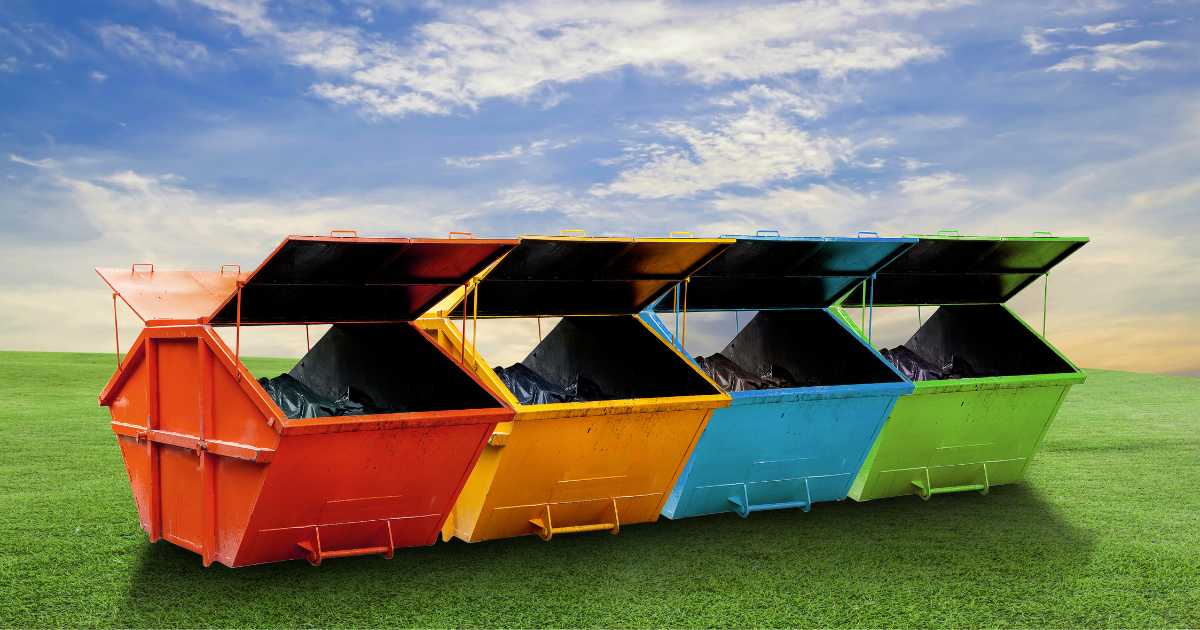Dumpster rentals are an essential service for waste management during renovation, cleanouts, or large-scale projects. However, the environmental impact of dumpsters is often overlooked. Whether you are a business offering dumpster rental services or someone renting one for a home renovation or event, it’s important to think about ways to make these rentals eco-friendly.
A cleaner, more sustainable approach will not only reduce the environmental footprint but also contribute to the circular economy and conserve natural resources. Here’s a detailed, step-by-step guide on how to make your dumpster rentals more eco-friendly.
Choose a Company with an Eco-Friendly Track Record
The first step toward ensuring eco-friendly dumpster rentals is choosing a responsible company. Research businesses that emphasize waste reduction, recycling, and environmentally conscious disposal practices. A green dumpster rental company will likely:
- Sort and segregate waste at the landfill to maximize recycling.
- Have partnerships with local recycling centers to ensure waste gets processed responsibly.
- Use eco-friendly or fuel-efficient vehicles for transporting the dumpsters.
Use a Roll-Off Dumpster to Minimize Landfill Waste
Roll-off dumpsters are often used for construction debris and large cleanout jobs. You can make this process more eco-friendly by using a roll-off dumpster that’s specifically designed to manage various types of waste more effectively. Ensure the dumpster has sections for different categories of waste, such as:
- Construction debris (wood, metal, drywall, etc.)
- General trash
- Recyclables (plastics, metals, cardboard, etc.)
By segregating waste, you prevent recyclables and reusable materials from ending up in landfills.
Reduce and Sort Waste Before Disposal
As a renter, you have the power to sort your waste before placing it in the dumpster. Properly separating waste can significantly improve recycling rates and minimize contamination. Consider these steps:
Reduce waste: Before starting any project, reduce the amount of waste by donating or selling items you no longer need. In the case of renovation or demolition projects, try to repurpose materials.
Separate recyclables: Put aside recyclables such as paper, cardboard, metals, and plastics. Keep these separate in designated bins.
Compost organic matter: If you’re working with a lot of garden debris, consider composting it instead of adding it to the dumpster.
The more separated the materials are when they enter the dumpster, the more likely they can be recycled or composted appropriately.

Opt for a Smaller Dumpster if Possible
Renting a dumpster that’s too large can result in unnecessary waste. Choose the smallest size dumpster that suits your needs. Having an appropriately sized dumpster reduces waste volume and helps limit unnecessary hauling. This contributes to reduced carbon emissions because smaller vehicles are needed to transport the waste. Smaller dumpsters also require fewer resources to produce. If your project extends, you can extend the duration of your dumpster rental to better manage waste.
Ensure Proper Disposal of Hazardous Materials
Some waste materials can harm the environment and are considered hazardous. These include:
- Paints and solvents
- Pesticides
- Chemicals
- Batteries
- Electronic waste (e-waste)
Do not throw these types of items into regular dumpsters, as they can pose a risk to the environment, workers, and wildlife. Check with your dumpster rental company for guidelines on properly disposing of hazardous waste and search for local collection programs for safe disposal of these materials. For specific hazardous materials, check out our guide on safely disposing of pharmaceutical waste.
Recycle Construction and Demolition Materials
Construction and demolition (C&D) waste constitutes a major portion of total waste generated. Materials like concrete, wood, metal, bricks, tiles, and glass can often be recycled. Instead of letting them end up in landfills, you can:
- Work with recycling facilities that accept C&D materials.
- Opt for construction waste diversion programs, which aim to divert debris from landfills through reuse and recycling strategies.
- Consider donating used materials such as furniture or fixtures to local charities or second-hand stores.
Minimize Single-Use Packaging Waste
For rental companies that work with construction sites, events, or other services, it’s important to minimize packaging waste. Dumpster liners made from plastic, for example, can contribute heavily to landfill waste. Whenever possible, opt for biodegradable options, and aim to minimize the usage of packaging for the materials being disposed of.
Use Alternative Waste Management Methods
Beyond the usual waste processing techniques, look into new, innovative waste management methods that support eco-friendly goals. Some examples include:
Waste-to-energy programs, which convert waste materials into renewable energy, reducing the need for landfill sites and helping produce usable energy.
Material recovery facilities (MRFs), which sort through mixed waste using machines and human labor to recover recyclables, can help make the waste sorting process faster and more efficient.
Deconstruction over demolition, where parts of a building are carefully removed for reuse or recycling, instead of being simply demolished.
Request a “Zero-Waste” Dumpster
Some rental companies now offer “zero-waste” dumpsters, which specifically accommodate organic waste and recycling, aiming to divert all waste away from landfills. This includes providing specialized containers for paper, plastic, metal, and compostable items. Ask your dumpster rental service provider if they offer this service and request that the contents of the dumpster be separated for recycling and composting.

Encourage or Educate the Users to Be Eco-Conscious
Incorporating eco-friendly waste management begins with proper education. Encourage renters to follow these eco-conscious practices:
- Educate them about sorting different types of waste.
- Provide instructions or guides on what can be recycled versus what should go to the landfill.
- Offer incentives for eco-friendly actions, such as discounts for renters who reduce the amount of waste or recycle actively.
Audit Your Waste to Evaluate Sustainability
After a project, review the contents of the dumpster rental. Consider working with your dumpster company to assess the proportion of materials recycled versus disposed of as waste. This evaluation can help you find areas for improvement in future projects and develop more sustainable practices.
Utilize Composting for Organic Waste
When renting a dumpster for a home or event clean-up, there’s usually significant organic waste. Composting options allow you to divert food scraps, yard trimmings, and plant-based items to the appropriate waste management facilities. This greatly reduces the environmental impact of waste that would otherwise contribute to landfill methane production.
Frequently Asked Question
How can I make my dumpster rental more eco-friendly?
To make your dumpster rental more eco-friendly, start by choosing a green dumpster rental company that emphasizes recycling and responsible waste disposal. Sort your waste before placing it in the dumpster, recycling materials like cardboard, metal, and plastic. Avoid throwing hazardous waste into the dumpster, and opt for composting organic materials. Additionally, use the smallest dumpster that fits your needs to reduce overall waste and transportation emissions.
Are there any dumpster rental companies that prioritize sustainability?
Yes, many dumpster rental companies are committed to sustainability and offer services that focus on recycling and waste diversion. Look for companies that operate recycling programs, partner with local recycling centers, and use eco-friendly disposal methods. Ensure the company practices proper waste sorting and minimizes landfill contributions by recycling as much waste as possible.
What should I do with hazardous waste when renting a dumpster?
Hazardous waste such as paint, batteries, chemicals, and electronics should never be disposed of in a regular dumpster. Before renting a dumpster, check with your rental company to see if they offer special services or guidelines for safely disposing of hazardous materials. Local recycling programs or waste facilities also may have specific drop-off locations for hazardous waste.
Can I recycle construction waste in a dumpster rental?
Yes, construction waste such as wood, metal, concrete, and drywall can often be recycled, but they need to be sorted and handled appropriately. Work with your dumpster rental company to ensure that recyclable construction materials are separated and properly diverted to recycling centers. Some companies offer special bins or services designed specifically for construction and demolition debris.
Should I choose a larger dumpster to ensure I have enough space?
Choosing a larger dumpster may seem like a good idea for convenience, but it can lead to unnecessary waste. Select the smallest dumpster that suits your needs to avoid overestimating your waste volume and to limit hauling costs and carbon emissions. Efficient waste sorting and reuse of materials can also reduce the amount of waste you need to dispose of.
What kind of waste can I compost while using a dumpster?
Composting organic waste is a highly effective method for minimizing contributions to landfills. During a clean-up or home renovation, you can compost materials such as food scraps, yard waste, leaves, grass clippings, and some plant-based items. Check local composting programs or your waste facility for compostable waste guidelines, and separate these materials from your regular dumpster load.
Conclusion
Making dumpster rentals eco-friendly requires effort from both the renter and the rental service provider. By choosing a company that practices recycling, reducing waste, and following disposal guidelines, you can significantly reduce the environmental impact of your waste management practices.
Every small action—whether it’s renting the right size dumpster, sorting your recyclables, or opting for waste-to-energy programs—can contribute to a cleaner and more sustainable planet. By following these steps, you are taking a crucial step in moving toward a more eco-conscious and circular waste management system.
